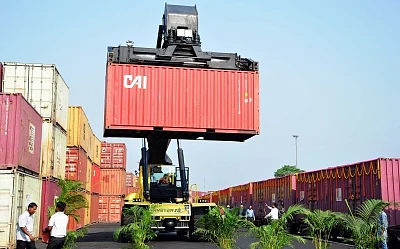These days, I keep hearing that democracy is being killed. We are not sure who, we are not sure how, but we do know for sure that murder most foul is afoot.
For someone brought up in the democratic tradition, this is a matter of concern. Especially now, as powerful nations betray isolationist tendencies. And authoritarian nations continue to keep democracy in permanent abeyance – despite Squares and Springs.
While all of us are strident advocates of freedom, I sometimes wonder what it is that we want to keep alive. What democracy?
The first, finest and most unambiguous example we have of democracy is direct democracy in Athens, under Cleisthenes as far back as the 5th century BC, where every citizen, excluding slaves, of course, had a view on every decision the state took. Which is why they called it democracy – demos (people) + Kratos (might).
This is not practical in a 1.3 billion strong nation such as India, which is why representative democracy was invented. A dance that has become notional.
Is liberal democracy under threat?

In a new, connected (and aware) world, representative democracies are increasingly becoming empty democracies, where once they vote, citizens are cut off from a say in how they are governed.
This is where I have a grouse with how we have used technology. Our entire energy went into trying to change what governments do. When what we could have done, is changed how the government is!
With technology, we can dialogue! We can use it for listening, build empathy and construct consensus. We can look at a contemporary, enriched version of a direct democracy.
People are making interesting beginnings. Taiwan has a neutral platform known as vTaiwan that engages experts and citizens in large scale deliberations. vTaiwan uses a mass deliberation tool called pol.is for consensus building.
It encourages people to draft statements on the topic that others can agree with, disagree with or abstain. This process continues till we see two broad, polarised groups emerge. Then the process continues with drafts that get agreement from both sides getting more visibility till the group arrives at a consensus. The final draft, the government then considers.
When you think about it, this is a perfect, scaled-up version of Cleisthenes and his Athenian citizens voting on issues in the forum with a show of hands. This is also happening in France, with Parlement et Citoyens bringing representatives and citizens together on a common online platform.
It is happening in Iceland, with Betri Reykjavik (Better Reykjavik) where citizens can share thoughts on everything from municipal issues to operations of the city. It is heartening to note that of the city’s 120,000 population, 70,000 have participated since Betri Reykjavik was launched in 2011.
This is not dissent. This is not Occupy.
This is just the realisation that with technology we can do away with the single reason democracy became representative – our inability to involve large masses of people in decisions.
This is just the beginning of an open society where we accept that there are as many values, ethics and truths as there are people expressing them.
Consider also, that with technology we can truly celebrate the human talent, all the human talent, that we couldn’t (or wouldn’t) use. There need not be just one, privileged way to rule the world.
There will come a time when Domini and Christ will give way and Before Social Media (BSM) and After Social Media (ASM) will be our labels for history. Let it not be said then, that we wasted an opportunity. That we let ourselves be governed.
(Atul Jalan is an entrepreneur and author of Where Will Man Take Us? This is an opinion piece and the views expressed above are the author’s own. The Quint neither endorses nor is responsible for the same.)
(At The Quint, we question everything. Play an active role in shaping our journalism by becoming a member today.)
